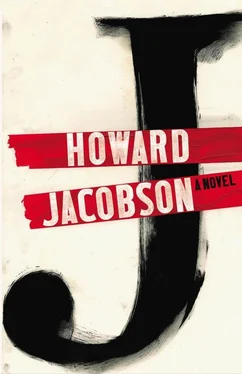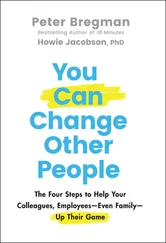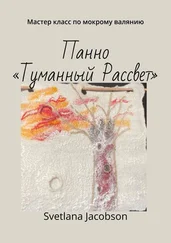Followed by an apology to Morvoren’s husband.
And no doubt, that idiot Kevern Cohen.
Kevern tried to remember whether the village had ever in reality been the placid haven pictured in its brochures by New Heritage, that body to which every taxpayer in the country was expected to contribute in return for an annual weekend away from the growing turmoil of the towns. Had it? He didn’t think so. Most of the teachers at the village school he had attended had been free with the cane or the slipper before saying sorry. The boys had brawled viciously in the playground. So had the girls. Tourists on their annual weekend breaks were laughed at behind their backs and made to feel unwelcome in the inns, for all that their custom was indispensable to the local economy. But he thought there had been some days when everything was quiet and everyone rubbed along. Whereas now it was never quiet, and no one rubbed along.
He joined in an ill-tempered game of darts with a group of sullenly drunken men, including Densdell Kroplik, failing to hit a single number he was required to hit and having to buy a round of drinks for his team as a consequence.
‘Up yerz,’ Kroplik said, raising his glass. Kevern laughed, not finding it funny. He wondered again what possessed him ever to let the barber near his throat with a razor.
The other men apologised.
‘Not necessary,’ Kevern told them.
Densdell Kroplik didn’t think it was necessary either. ‘Don’t yez go apologising for me,’ he said, spitting on the floor. ‘I do my own, when the time’z right, and thiz izn’t.’
Kevern walked away. He wanted to leave, but didn’t. His cottage was quiet and he needed noise. A little later, he accepted a challenge to play pool from a handsome, broad-shouldered woman who ran the mug and tea-towel shop in which he sold his lovespoons. Hedra Deitch.
She scattered the balls with an alarming vehemence, called Kevern ‘my lover’, and made derogatory remarks to him about her husband who was slumped at the bar like a shot animal, coughing out the last of his blood into a pint pot of brown ale.
‘That’s how he looks when he finishes himself over me,’ she said, in a voice loud enough for him to hear.
Kevern wasn’t sure what to say.
‘Eat shit!’ her husband called across to her.
‘Eat shit yerself!’
Kevern thought about leaving, but stayed.
‘You think he’d be only too glad to give me a divorce,’ Hedra Deitch went on. ‘But oh, no. We must stay together for the children, he says. That’s a laugh. He doesn’t give a flyin’ fuck for the children and suspects they’re not his anyway.’
‘And are they?’ Kevern asked.
‘What do you think, my lover?’
‘I can’t imagine you passing off another man’s children as his,’ Kevern said.
She choked on her laughter. ‘You can’t imagine that, can’t you? Then you doesn’t have a very vivid imagination.’
Kevern tried imagining, then thought better of it. He went home alone, after submitting briefly to one of Hedra Deitch’s muscular snogs. Forcing brutish kisses on people you neither knew well nor cared much for wasn’t confined to men. Both sexes broke skin when they could.
A sharp-edged moon lit his way. Once upon a time he’d have been able to hear the sea on a night such as this, the great roar of the ocean sucking at the rocks, breathing in and then breathing out, but the din of voices raised in brawling throughout the village drowned out all other sounds. A quarter of a mile up the road to his cottage he passed the Deitches kissing passionately in a doorway. To Kevern they resembled a single beast, maddened by the need to bite its own mouth. Great fumes of beer and fish rose from its pelt. If Kevern’s ears didn’t deceive him, Hedra Deitch was alternately telling her weasel husband to eat shit and apologising to him.
The unseasonably warm wind of earlier in the day — smelling of seals and porpoises, Kevern thought — had turned cold and bitter. Something far out to sea was rotting.
He could have done with company, but he knew it was his own fault he had none. ‘Company is always trouble,’ his father used to say, laughing his demented solitary laugh. But he didn’t have to listen to his father. Taking after your father was optional, wasn’t it?
He knelt on one knee and peered in through the letter box of his cottage. Shocked by what he saw, he staggered backwards. The cottage had been ransacked. There was blood on the carpet. In the two or three seconds it took him to recover himself, he wondered why he was surprised. This was no more than he’d been expecting. And now the knife between his shoulder blades. .
He looked again, not afraid of what he’d see. Relieved, he thought.
At last.
But everything was, after all, exactly as he’d left it — the disrespected rug, the teacup, the slippers. There was a blue glow from the television. All was well. He was in. Alone.
It was his utility phone that was flashing the colour of blood.
It sounded like singing. Not a choir, something more random and impatient, a hubbub set to music. He could smell burning but saw no fire, only smoke. Then an enormous rose of flame opened briefly as though, with one supreme effort, it meant to enfold the charred sky in its petals. Against the flame he was able to make out the silhouette of a figure, a slight boy, falling from a high wall. Even before the boy reached the ground the singing grew ecstatic, as though the singers believed their chanting was responsible. ‘Down with the enemies of—!’ they cried. He couldn’t make out the word in the frenzy of its delivery. Life, was it? Down with the enemies of Life ? Or mice? Down with the enemies of Mice ? Down with them, anyway. He thought he recognised the keep from whose tower the boy, like a doll with no weight, continued to float and lightly fall to earth. Yes, he knew it. Inside those walls, inside that fire, he had knelt by the body of a mother — he couldn’t say, after all this time, if she were his. Her eyes were open but unseeing. Her clothes had been torn from her body. Where her throat was cut a scarlet rose flowered, smaller than the one that had briefly illuminated the sky, but no less remarkable. Its loveliness flowed from it in a stream, running down her breast. He dipped his finger in it, as though it were wine, and put it to his lips. Down with me, he thought.
Friday 27th
HO, HUM. .
For anyone opening my diary for the first time — and it’s for futurity in all its misty uncertainty that I write — ho hum denotes the sound of my mind whirring, not cynicism.
It would appear that he learnt to take these Byzantine precautions from his parents, as they, perhaps, had learnt to take them from theirs, otherwise they denote nothing other than an uncommonly anxious disposition. .
So concluded the first report on Kevern ‘Coco’ Cohen I ever wrote. I have a copy in front of me in a black folder. Always wise to keep a copy. I was guessing, I admit that much, but guesswork is an important part of what I have been entrusted to do. Guesswork informed by a knowledge of the ways of men, I mean, a trustworthiness of intuition and a shrewdness of observation, which I flatter myself I possess in as great a measure as any person. Perhaps more. I work — I don’t call my observations of Kevern Cohen ‘work’ — in one of the most trustworthy and ophthalmically demanding professions, as a teacher of the Benign Visual Arts. I am also a painter myself. Landscapes, naturally. Hence their giving me far west Bethesda as my territory. Bethesda with its long history of naive art — spirituality apprehended in the everyday — and of course St Mordechai’s Mount which I can see from my studio window and walk to when the tide is out. Modesty should forbid me mentioning my Seventeen Sketches of St Mordechai’s Mount In All Seasons which enjoy prominence in the Parochial Beauty Rooms at the New National Gallery, but they are my best work to date and I am proud of them. I would have preferred to stay in the Capital, for all its troubles — if only to enjoy the illusion of being at the centre of things and eating a little better — but the position I occupy in the Bethesda Art Academy has its consolations. Head of painting within a department as dedicated to feeling as any in the country is not a job you sniff at. I’ve heard it argued that Bethesda found it easier than most art colleges to make the journey back from insentience to feeling because for us, feeling never really went away. Conceptualism, or mind-machine art as historians now call it, had always been more of a city than a country fad. It had been practised down here but without any real zest or instinct for it. A few local potters defied the tradition of their craft, forgot or simply refused to remember that a pot’s job was to express, in silence and slow time, a flowery tale with sweetness, and set about throwing misshapen objects that had no utility except to offend whoever looked on them by virtue of the obscene acts they depicted. The art, they explained, when they could be bothered to explain anything, lay precisely in the offence. But the joke never took. Obscenities don’t shock country people who practise them without thinking twice. And as for the ironies of installation art, you needed department stores all around you to appreciate those, just as you need the colours of a big sky and the changeability of a turbulent sea to understand why painters have to paint. The pursuit of beauty is no mystery when you wake to it each day. And I have always argued that the real sentimentality is not the indulgence of colour but the denial of it. It went missing, anyway. Three generations lived and died without seeing colour except in its lipstick-pink and electric-blue manifestations, flashing tubes and the like, ironic statements about colour and its production, denying the naked sensuousness that makes true lovers of painting believe they are seeing the face of God. But enough of that. You will find my thoughts on the subject — much extended — in many a volume of Sublime Quarterly , Bethesda’s own art magazine, which can be ordered from any gallery shop in the country and also a good number of the better newsagents. I write under my own name — Edward Everett Phineas Zermansky (Everett to my friends, Phinny to my family) — and am told that I am highly readable.
Читать дальше












